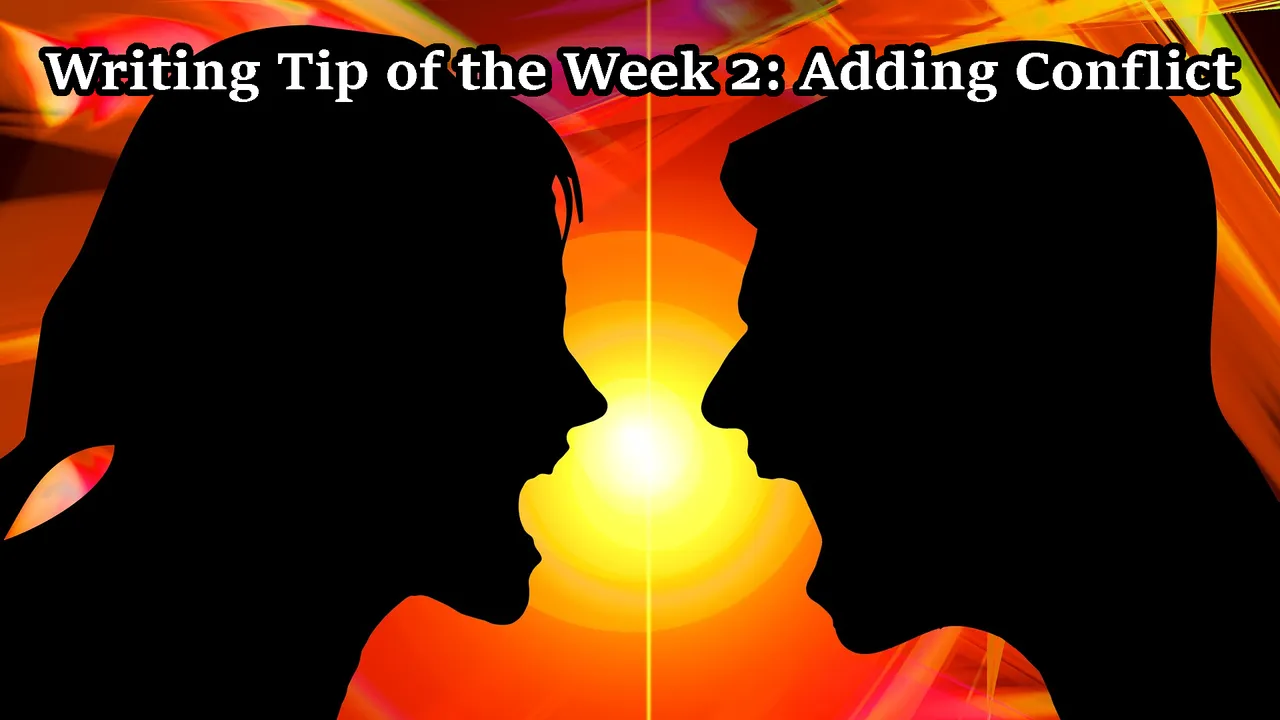
Image by mikegi from Pixabay Modified using PhotoShop
Growing as a writer is a long process, a bit like starting out as a cute little worm and then forming a chrysalis and eventually emerging as a butterfly. We have to transform over time.
One of the things that writers sometimes overlook when they are new to writing and still building that chrysalis, is the importance of conflict in a story.
Conflict is what gets your reader to sit up and pay attention. The longer it takes to get to the conflict, the more likely we are to lose the reader to a YouTube video or the need for a snack. Let’s explore this.
Let’s say you are writing a story about Sally. Sally could walk into a store and buy something very nice that she wants to serve for dinner. Perhaps she has never made steak au poivre. So she buys all the ingredients she needs, and is very excited about her plan to make this dinner. As the author of this story, you might spend several paragraphs describing Sally and her interest in making steak au poivre for the first time. She might have lovely brown hair and an impish nose. And you could write about the store and how it is a wonderful place to shop that smells of baked goods and brown paper bags. All is well and good.
But wait -- something is missing. As you write these opening paragraphs, perhaps you start to lose interest in your own story. It seemed so good! What happened? Why does it seem to be kind of boring?
The problem is, you haven’t given us anything to worry about. Everything is all too nice. I’m sorry to tell you this, but for us to keep reading, something bad might have to happen to Sally. We need conflict.
Now, you don’t have to start right out with the central conflict of the story. That can come later as your plot builds. But we need at least a hint that things are not all well and good. Sally could get a run in her stocking, right before she walks into the store. (Evidently this story takes place in the 1960s!) Or the butcher could be out of the type of meat that she needs for steak au poivre. Oh no!
Or perhaps the store telephone rings. It’s her husband.
Why is her husband calling her at the store? This can’t be good.
The look on the butcher’s face suggests something worrisome - maybe because her husband was speaking with an angry tone. Or maybe he said to the butcher, “Is my wife there? Something’s happened. I need to speak to her right away please.” And maybe she could hear him say these words through the receiver in the butcher’s hand. She thinks of the children. What has happened to her children?
We would have to keep reading to find out.
Hopefully, if you are fairly new to writing you can see from this example how important conflict is for engaging the reader. As soon as there is trouble, we are interested. We want to know more. And we will therefore keep reading.
If you are working on a story and you feel strongly that something is missing, take a hard look at how you are integrating conflict. It just may be the missing piece!
Happy writing!
@jayna, writer and moderator at The Ink Well.

I would like to invite any lovers of poetry and short stories to visit the new hive community I started with @stormlight24 called The Ink Well.
Also, with the advent of https://hive.vote/ it is now possible to follow The Ink Well curation trail on Hive blockchain. It works just the same as steemauto; simply navigate to the curation trail section and search for theinkwell (all one word with no @ symbol) and our trail will pop up as an option.
Similarly delegations are possible on Hive using the fantastic https://peakd.com/ Hive Blockchain front end. If you wish to delegate to @theinkwell that supports creative writing on Hive by voting all of our contributors, you can do this from the wallet section of https://peakd.com/
At the moment I'm not 100% sure who has delegated what amount to the @theinkwell community as the tools are still under development to check these stats accurately. But through talking to people and asking around I know who to thank. There is also a mystery delegate of at least 500 hive power (maybe more) which is captivating my mystery writer's mind with a tickle stick of intrigue 😉


